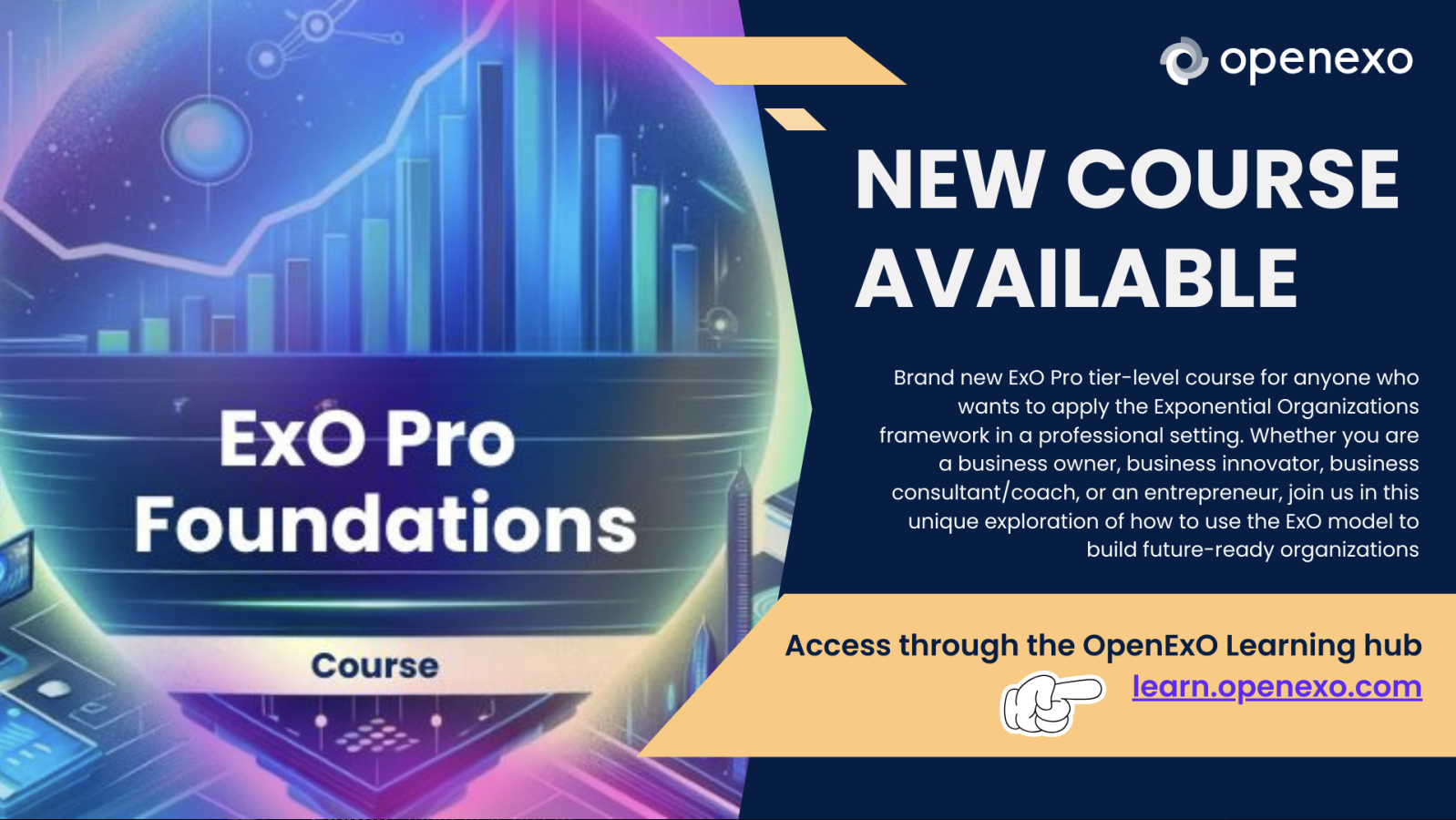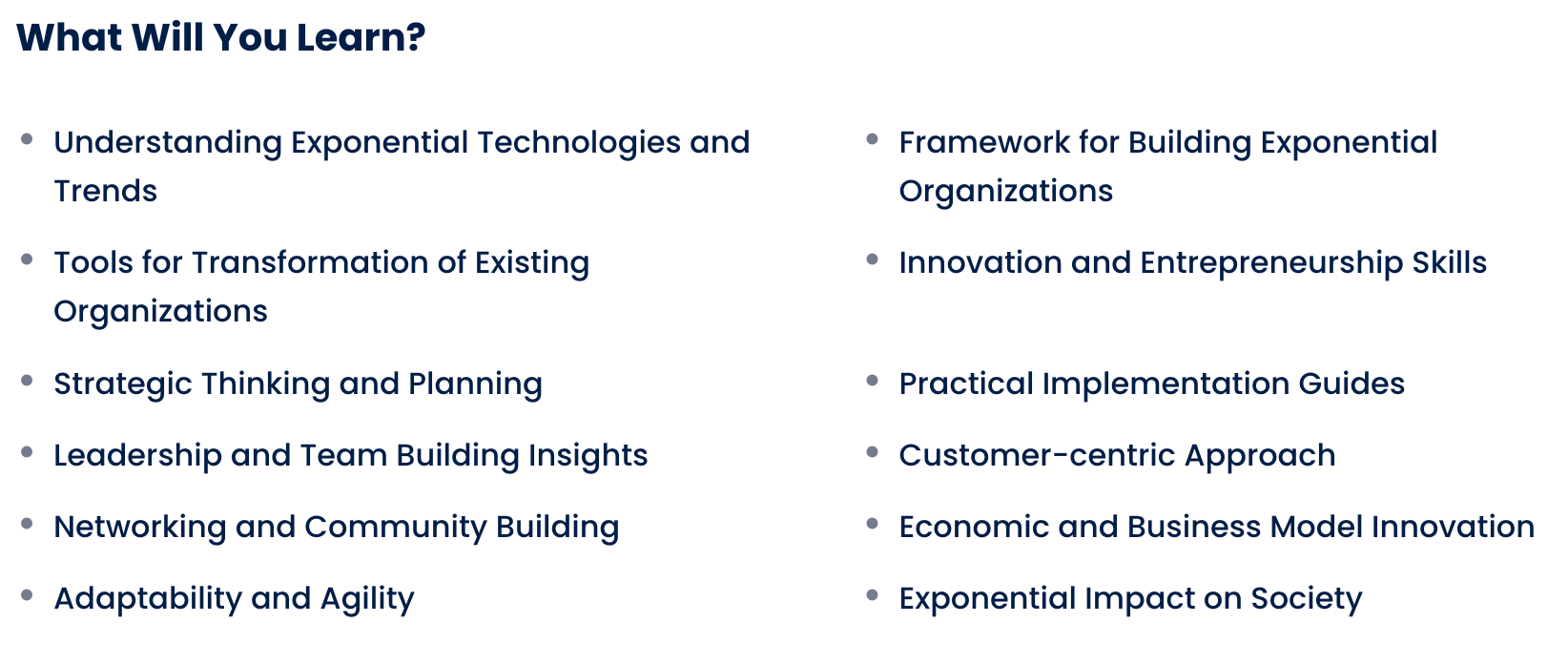
Disruptive Potential: How Exponential Attributes Are Transforming Education #2
By effectively leveraging algorithms, educational organizations can provide more personalized and engaging learning experiences, streamline processes, and make data-driven decisions to continuously improve student outcomes and operational efficiency.
Welcome to the second step of your journey towards exponential education transformation. In the previous article, we delved into the powerful role of Staff on Demand and Community & Crowd.
As you continue to explore the transformative potential of exponential technologies in the educational sector, you’ll uncover the impressive opportunities presented by Algorithms.
In recent times, algorithms have taken center stage, demonstrating their power in personalizing learning journeys, streamlining processes through automation, and generating data-driven insights to continuously optimize student outcomes.
So, let’s dive in and explore the boundless possibilities that leveraged assets have to offer, unlocking new horizons for exponential growth and success in the educational sector.
Algorithms
Educational institutions and online learning platforms are increasingly utilizing algorithms to personalize learning experiences, automate processes, and gain data-driven insights.
By harnessing the power of algorithms, they can adapt to individual needs, optimize resources, and continuously improve outcomes. Personalized and adaptive learning is a prime example of algorithm utilization in education.
Platforms like Knewton and Carnegie Learning leverage machine learning algorithms that analyze student data, such as performance, behaviors, and preferences, to dynamically adapt the learning path, pace, and materials.
Content recommendation algorithms, like those used by Khan Academy and Coursera, suggest relevant resources, practice exercises, or assessments based on the student’s level and learning goals.
Intelligent tutoring systems, exemplified by companies like Carnegie Learning and Third Space Learning, use algorithms to provide personalized feedback, hints, and support in real-time based on student responses.
Automated grading and assessment is another area where algorithms are making a significant impact. Natural Language Processing (NLP) algorithms, employed by platforms like Gradescope and Revision Assistant, can automatically grade open-ended responses, essays, and coding assignments. Computer vision algorithms, as used by Crowdmark and Gradescope, can evaluate and provide feedback on diagrams, sketches, or graphical submissions.
Furthermore, algorithms can identify patterns in student work, flag potential plagiarism, and provide detailed rubric-based evaluations, as seen in tools like Turnitin and Proctorio.
Predictive analytics and intervention are also benefiting from algorithmic approaches. Predictive modeling algorithms, like those used by Civitas Learning and Instructure, analyze student data, such as grades, attendance, and engagement, to identify those at risk of underperformance or dropping out.
Early warning systems powered by algorithms, exemplified by Schoolzilla and BrightBytes, can trigger proactive interventions, such as personalized support or nudges, to get students back on track. Additionally, algorithms can optimize resource allocation, scheduling, and staffing based on predicted demand and student needs, as implemented by institutions like Arizona State University and Georgia State University.
By effectively leveraging algorithms, educational organizations can provide more personalized and engaging learning experiences, streamline processes, and make data-driven decisions to continuously improve student outcomes and operational efficiency.
Additional examples include:
- Codecademy – Codecademy is an interactive platform for learning coding and programming skills that incorporates algorithms to provide personalized feedback and guidance to users. The platform’s algorithm assesses a learner’s progress and adapts the learning path to ensure mastery of coding concepts. Link to Codecademy
- Quizlet – Quizlet is a study tool platform that uses algorithms to generate personalized study sets, flashcards, and quizzes for students. The platform’s algorithm analyzes user performance and adapts the study materials to focus on areas that require reinforcement, enhancing the learning experience. Link to Quizlet
- Squirrel AI – Squirrel AI is an adaptive learning platform that uses AI algorithms to personalize the learning journey for each student. The platform analyzes student performance data and adapts the curriculum in real-time to address individual learning needs and optimize learning outcomes. Link to Squirrel AI
- Carnegie Learning – Carnegie Learning is an educational technology company that offers AI-powered tutoring and assessment tools for K12 students. The platform uses AI algorithms to provide personalized feedback, adaptive learning paths, and real-time insights to help students improve their academic performance. Link to Carnegie Learning
- DreamBox Learning – DreamBox Learning is an online math program for K8 students that leverages AI to provide personalized math lessons and adaptive learning experiences. The platform’s AI algorithms analyze student interactions and performance data to create individualized learning paths and support student mastery of math concepts. Link to DreamBox Learning
- IXL Learning – IXL Learning is an educational platform that offers personalized learning experiences for K12 students in various subjects. The platform integrates AI algorithms to provide interactive practice exercises, real-time feedback, and personalized recommendations to help students strengthen their skills and achieve academic success. Link to IXL Learning


ExO Insight Newsletter
Join the newsletter to receive the latest updates in your inbox.








